Zeus: Fed's shift on climate policy won't weather the coming storms
Climate change inflation, financial damage are impossible to ignore.
This column is for Callaway Climate Insights subscribers only, but it’s OK to share once in a while. Was it shared with you? Please subscribe.
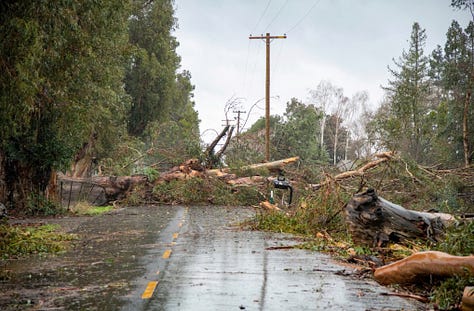
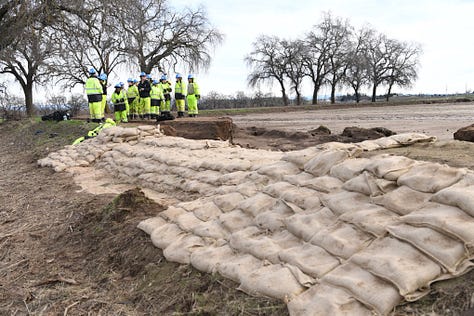
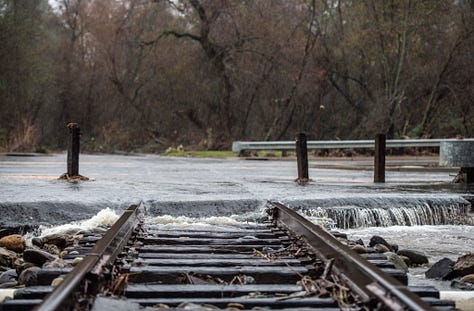
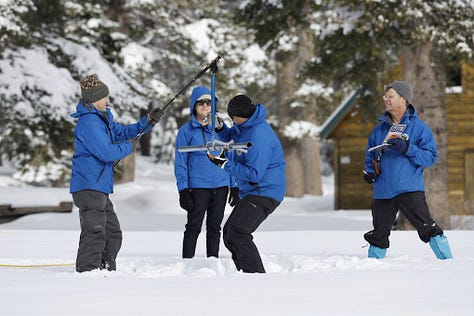
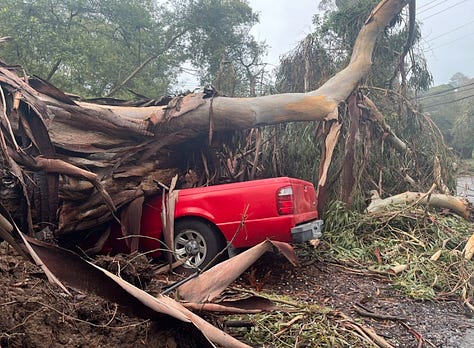
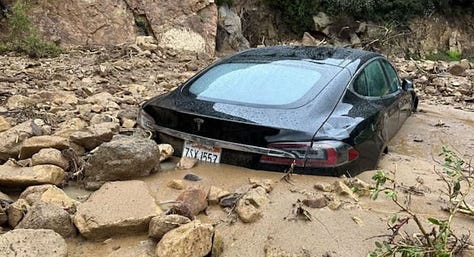
From causing downed trees and power lines, weakened levees, and snow-pack measurement to a Tesla buried in a mudslide in Santa Barbara, relentless storm systems are battering the West. Photos: Calif. Dept. of Water Resources; Thomas Brew (Twitter); Sean Malarkey (Twitter).
(David Callaway is founder and Editor-in-Chief of Callaway Climate Insights. He is the former president of the World Editors Forum, Editor-in-Chief of USA Today and MarketWatch, and CEO of TheStreet Inc. His climate columns have appeared in USA Today, The Independent, and New Thinking magazine).
SAN FRANCISCO (Callaway Climate Insights) — “What is going on in California,” a friend from New York texted the other night. “Old Testament-types of floods and famines. Any locusts?”
Actually, my editor points out, locusts were the eighth plague on Egypt. Frogs were the second. “We’re more at the frogs stage now.”
As the rain pounds outside my house for the seventh straight day after arriving home from the holidays, more than one commentator or wag has spoken of the biblical nature of the storms hitting California. Atmospheric rivers, bomb cyclones, thunder, lightning, hail, and rainbows all in the same afternoon. We got it.
For a region suffering from unprecedented drought, it’s bizarre to see a month of storms fill all the reservoirs and then some, but that’s climate change. Once the storms have passed in a few weeks, the damage assessment will begin.
There’s no doubt that in addition to the cost in lives lost, the damages will be in the billions. And as nature has it in California, the vegetation fed by the rain this month will grow and serve as fuel for wildfires this summer, which will in turn loosen the soil and make it vulnerable to mudslides next winter.
Paradise has its cost. And banks, insurance companies, and consumers are going to pay for it. Which brings me to the comments earlier this week by Federal Reserve Chairman Jay Powell, who said the central bank “is not, and will not be a climate policymaker.”
Keep reading with a 7-day free trial
Subscribe to Callaway Climate Insights to keep reading this post and get 7 days of free access to the full post archives.

